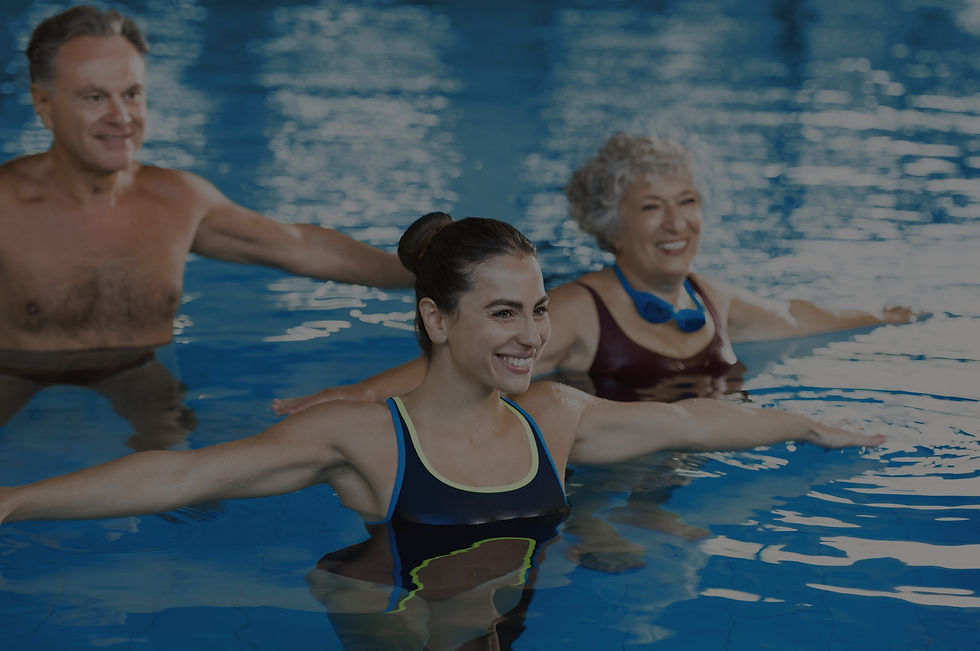Movement is Medicine: Physical Therapy & Arthritis
- Physical Therapy
- Aug 5, 2024
- 2 min read
Updated: Jan 29

May is national arthritis month. Arthritis may seem relatively benign - everyone knows someone who has arthritis. But here are some numbers that help put the problem of arthritis into perspective:
Arthritis is the leading cause of disability.
Arthritis affects 1 in 5 adults and 300,000 children
1/3 of working-age people with arthritis have some kind of limitation in their ability to work
Arthritis costs $156 billion each year in medical expenses and lost wages
Nearly 1 million hospitalizations happen each year due to arthritis
It's a serious condition, and a serious problem. The good news is that physical therapy is one of the most effective treatments for arthritis.
The Benefits of Physical Therapy for Managing Arthritis Symptoms
Arthritis comes in 2 forms: osteoarthritis and rheumatoid arthritis. Osteoarthritis occurs because of wear and tear on the joints over time. Rheumatoid arthritis is an inflammatory, autoimmune disease. It occurs because of the immune system attacking the joint lining. Physical therapy can reduce joint pain, improve mobility, and help to prevent further damage to the joints. Using individualized exercises, physical therapists help people manage their condition and reduce discomfort. Physical therapists often combine advice on lifestyle modifications with exercise to maximize improvement. Let's look at the types of exercise that can help manage arthritis symptoms next.
RANGE OF MOTION EXERCISES
These gently move affected joints through their entire range of motion. This can help reduce stiffness and improve mobility. Examples would include things like gentle stretching, tai chi, or gentle yoga.

AEROBIC EXERCISE
Aerobic exercise creates repeated motion, moving the synovial fluid in the joints. It also increases blood flow and releases endorphins which reduce pain. Aerobic exercise also helps to control weight. Weight loss is proven to reduce the stress on your joints, which can reduce pain. Aerobic exercise for people with arthritis should be low impact. This would include things like walking, cycling, or swimming.
STRENGTH TRAINING
Strength training is an important part of managing arthritis. It decreases pain, improves strength, and function. Stronger muscles around the affected joints provide better support and protection.

AQUATIC EXERCISE
Exercising in a therapeutic pool can be a great way for people with arthritis to get started. The buoyancy of the water helps to relieve some of the body's pressure on the joints. The water pressure also provides compression on the joints. This offers some stability and pain relief. The movement of your body through the water creates resistance for your muscles. This allows them to get stronger in a protective environment.

EDUCATION
Besides designing a custom exercise program, a physical therapist will educate people with arthritis on lifestyle modifications to help mange their symptoms. Some suggestions might include weight loss, getting enough sleep, eating a healthy diet, and managing stress. A PT can also modify daily activities to help protect joints affected by arthritis. This can slow down or prevent progression of symptoms.
Physical therapy is a safe and effective treatment for arthritis. Current clinical guidelines for treating arthritis include strong recommendations for exercise and other physical therapy treatments. If you're one of the 53 million Americans with arthritis, give your PT a call. They're a great provider to help you reduce pain, manage your symptoms, and move better.

Comments